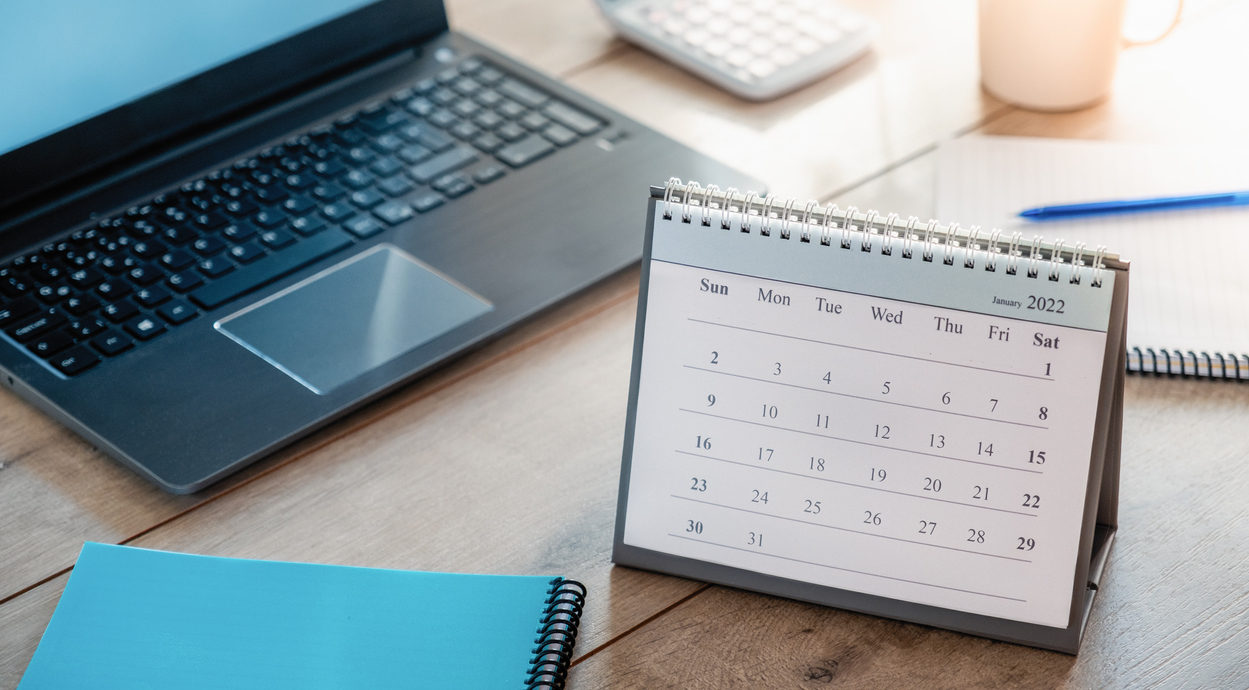
"How was your weekend?"
"Way too short!"
We all know how common this conversation is across Australian workplaces on Monday mornings.
For most of us, two days a week just won't cut it for rest and recovery. Even with the most comprehensive wellbeing policies in place, work demands will take their toll on employees. Eventually, everyone needs to take a break.
That's why you and your employees must prioritise taking annual leave. The benefits of taking annual leave won't just impact your staff but your business as a whole!
Encouraging staff to take time off helps prevent burnout, improve focus, and strengthen retention - making it a smart business strategy, not just a statutory requirement.
As your HR support team, we'll discuss how to ensure everyone is getting the rest they need and the benefits it can have overall.
Annual leave in Australia
Under the National Employment Standards (NES), all full-time and part-time employees are entitled to 4 weeks of annual leave, based on their ordinary hours of work and paid at their base pay rate. For example, if an employee works 30 hours a week, they are entitled to 120 hours of annual leave.
A modern award, registered agreement, or employment contract can provide a worker with more annual leave (and a different method of payment or entitlement to annual leave loading) but can't offer less than the NES minimum. For example, shift-workers may get up to 5 weeks of annual leave each year, depending on the terms of the award and the pattern of shift rostering.
Casual employees don’t get paid annual leave under the NES.
Annual leave accumulates continuously from the first day of a person’s employment, even if they start on a probation period. Any unused annual leave rolls over from year to year.
Annual leave still accumulates when an employee is on paid leave (e.g. paid annual or sick and carer's leave) and long service leave, but doesn't accumulate when the employee is on unpaid leave (except community service leave), e.g. unpaid parental leave.
Taking annual leave
Employees can take annual leave as soon as they accumulate it, but there is no requirement for it to be taken each year. There is no maximum or minimum period of annual leave that a worker can take.
Some modern awards and registered agreements set out the rules for taking, directing, and granting annual leave.
Employees not covered by an award or registered agreement can agree with their employer about when they take annual leave and for how long. An employer cannot unreasonably refuse a worker’s annual leave request.
Employees can also 'cash out’ some of their annual leave, depending on the terms of their award or registered agreement, or by agreement with the employer.
For more specific information on annual leave, visit the Fair Work Ombudsman website.
Potential changes to annual leave entitlements
The Fair Work Commission has been considering a proposal that would allow employees to double their annual leave entitlement by taking the leave at half pay. Employers would be able to refuse employees' requests to take longer annual leave based on "reasonable business grounds".
More details are expected to be released when the Commission makes its decision.
Benefits of taking annual leave for employees
Stress reduction and mental health
Taking a break from the daily grind is crucial for mental rejuvenation. Studies have shown that holidays can dramatically lower stress and anxiety levels. Research conducted by the American Psychological Association has found that taking time off from work can be an effective way to alleviate stress by removing individuals from activities and environments that contribute to anxiety.
When employees step away from their work environment, they detach from the sources of their stress, leading to improved mental wellbeing. The relief from constant deadlines and work pressure not only aids in immediate stress reduction but also contributes to long-term mental health stability.
Boosting physical health
The implications of overwork extend beyond mental health, significantly impacting physical wellbeing. Continuous work without adequate breaks can lead to severe health issues, including heart problems and increased susceptibility to illness.
Annual leave serves as a necessary pause, allowing the body to recuperate from the intense demands of work life. This rest period is not a luxury but a necessity for maintaining long-term health.
Enhancing work-life balance
A healthy work-life balance is not just a buzzword; it's a fundamental aspect of a fulfilling life. Annual leave provides an opportunity to spend quality time with family, pursue hobbies, or simply relax, contributing to a well-rounded life.
In Australia, taking full advantage of annual leave days is a step towards achieving this balance. The time spent away from work responsibilities recharges one's energy and brings a fresh perspective to personal priorities.
A study by global employment company Remote found that Australia is one of the best countries in the world for quality of life-work balance among the top 60 GDP nations. It is a great sign that, as a country, we are taking annual leave and its benefits seriously.
Benefits of taking annual leave for employers
Increased productivity and creativity
Returning to work after a period of leave often brings a renewed sense of energy and perspective. Employees tend to come back with fresh ideas and an invigorated approach to problem-solving.
This rejuvenation empowers employees to come back feeling more motivated with increased productivity. Taking annual leave is a win-win situation for both the employee and the employer, as a more productive workforce leads to better business outcomes.
Reducing employee burnout
In today's high-pressure work environments, employee burnout is a growing concern. Burnout is especially prevalent in Australia, according to recent research by healthcare technology company, TELUS Health, that found over 60% of Australian workers felt "extremely" or "somewhat" burnt out.
This follows last year’s State of the Global Workplace 2023 Report by Gallup that found 47% of Aussie employees experienced daily stress at work.
Annual leave plays a critical role in preventing burnout. It allows employees to disconnect, recharge, and return to work with renewed vigour. This break benefits the individual's health and wellbeing while reducing the likelihood of extended absences due to burnout-related health issues. For businesses, this can lead to a more consistent and reliable workforce, less disruption, and potentially lower healthcare costs.
Encouraging a healthy business environment
A culture that values and encourages taking annual leave fosters a healthier work environment. This culture can lead to higher employee engagement, loyalty, and a positive workplace atmosphere. When employees feel their wellbeing is valued, it can enhance their commitment to the organisation. A positive work culture can help reduce turnover rates, fostering a sense of community and belonging within the team.
Regular use of annual leave by employees ensures a more evenly distributed workload throughout the year, avoiding end-of-year leave bottlenecks and ensuring smoother business operations.
How can employers encourage annual leave usage?
Encouraging and supporting employees to take time off is crucial for employers, helping to recognise the benefits of a healthy work-life balance and promoting employee wellbeing.
There are plenty of ways to encourage people to take annual leave, but there are also some pitfalls to be aware of. Here's a list of the dos and don't of encouraging time off.
Do:
- Communicate clearly: Regularly remind employees of their leave entitlements and the importance of taking them. Clear communication prevents misunderstandings and ensures everyone is on the same page.
- Lead by example: Management should also take their leave, setting a positive precedent for employees. It shows that taking time off is not only accepted but encouraged at all levels.
- Plan and prepare: Encourage employees to plan their leave in advance. Careful planning ensures minimal disruption and helps manage workloads effectively during their absence.
Don't:
- Guilt-trip or penalise: Never make employees feel guilty for taking leave. Avoid negative remarks or implications that their absence is inconvenient.
- Overburden before or after leave: Avoid loading employees with excessive work before or after their leave, as this can create stress and negate the benefits of the break.
- Ignore burnout signs: If employees show signs of burnout, encourage them to take leave. Ignoring these signs can lead to serious mental and physical health issues.
Annual leave is much more than a break
In the hustle and bustle of modern work life, it's easy to forget the age-old wisdom: All work and no play makes Jack a dull boy.
The benefits of taking leave extend far beyond a mere break from work. For employees, it's a crucial aspect of maintaining mental and physical health; for businesses, it's a strategy for fostering a more productive, loyal, and innovative workforce.
For help with managing leave with your business or advice on taking annual leave, contact MyHR about our employee leave management system.



